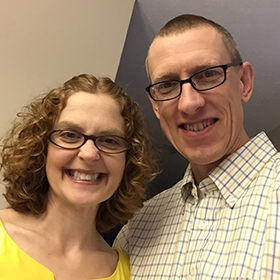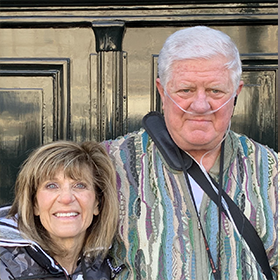
You probably have more assets than you think. Before determining a plan for sharing your gifts after you’re called home to Heaven, it’s helpful to understand what form those gifts most often take.
In today's world, our assets are often far greater than the money we have in our checking or savings account. Most of us have even greater wealth in things like IRAs, life insurance policies and the equity we have in our homes.
When we look at the full picture of how God has blessed us, our gifts can include:
A bequest is one of the easiest planned gifts and is usually as simple as directing a gift be made as a component of your will. However, bequests have limitations. For example, if your will says to leave 10 percent of your estate to your church, but your life insurance policy lists your children as full beneficiaries, those funds will not be included in calculating how much of your estate will go to your church.
A charitable remainder trust (CRT) involves transferring cash, property or appreciated assets to a trust in return for tax deductions and income payments for a term of years, to either yourself, if the trust is funded while your alive, or to your heirs if the trust is funded after you’re called home to Heaven. When the trust term ends, all funds still within the trust become a gift to the ministry you designated when you established the trust .
A donor advised fund (DAF) is an account you create specifically to support the ministries or charities of your choice. DAFs are a great way to establish a tradition of giving among your children and grandchildren, as each year (or more or less often) you can plan as a family what gifts to make out of the fund and which ministries to support. A donor advised fund is a simpler alternative to a family foundation. DAFs can be established with as little as $25,000.
Many of our donors want to leave a dependable stream of funding to a favorite ministry or to a cause that’s near-and-dear to their hearts. Most are surprised at how easy it is to create a personal endowment, and that you don’t have to be wealthy to do it. Whether it’s a teacher who wants to create a scholarship at her school, or the alumni of a childhood camp that wants to make sure more children can afford attending the camp in the future, creating a personal endowment can be a moving and joyful experience. Endowments can be perpetual or last for a term of years, based on the donor’s instructions.
When they consider the equity they have in real estate, many people have much greater wealth (and ability to give to ministry) than they imagined. Homes, land or other property make great gifts to ministry, and usually come with many tax benefits to the donor. Although donating real estate (or any appreciated asset) can seem complicated, it's actually one of the best ways to provide a substantial gift to the ministries you want to support. And in return, you'll usually qualify for a tax deduction and avoid capital gains tax. Click below for more information about donating real estate.
Like donating real estate, donating appreciated assets is a great way to make a gift to ministry. Gifting appreciated assets—things like publicly-traded securities, stocks or even collectables—can be a blessing to both you and the ministries you choose to support. By donating assets that have grown in value, you can often avoid incurring capital gains tax on their sale, plus benefit from an immediate tax deduction that year. More importantly, that means you can provide a greater gift to ministry, versus much of the gift being reduced by taxes.
Gift annuities are often good options for donors that want to make a gift to charity after they’ve died, but want to put their assets to use to create a source income for while they’re still on this Earth. After making a gift (creating an annuity), donors begin receiving fixed, lifetime payments. When the donor is finally called home to Heaven, the remaining value of their annuity becomes a gift to the ministry of their choice.

If your congregation or ministry has a gift planning program in place, there’s no charge to work with one of the counselors. Click the "Learn More" button below to learn how to get started, including setting up a no-obligation discovery session. leaders.
Starting a gift plan program for your ministry can be simple. We have partnerships with dozens of LCMS congregations, schools, ministries and even our seminaries. If you think your ministry should have a program in place, we’re happy to talk with your pastor or ministry leaders.
Gift planning can seem overwhelming and it's often hard to know where to start. If you’re still not sure if gift planning is for you or right for your family, or are unclear as to what makes a gift plan different from a will, please visit our FAQ for more details.

Helping our people walk through their Lifetime Plan for Giving not only reminds them why we give, but it also has opened the opportunity for them to support the ministries that are near and dear to their hearts in an intentional way.
Rev. Ted Laesch
St. Louis, MO

What a blessing it was to have a knowledgeable person help us set aside time, give us a structure for our planning, and most of all to share our faith and give us brotherly encouragement in Christ throughout the process!
Rusty & Sarah Becker
Indianapolis, IN

My wife and I had been talking about making a will for several years. To our surprise we found out that the church we attend has a gift planning counselor to do just that and at no cost to its members.
Gary Schuchman
Arvada, CO

We had no idea of the opportunities available to us before this consultation! What a great opportunity this is for anyone to use.
Bob & Linda Olsen
Littleton, CO
How can we help you today? If you're a current donor, or if you're new to the LCMS Foundation and would like more information, we'd love to hear from you. Please use the "I have a question or comment about" drop-down field below to get your comment to the correct person or department faster.